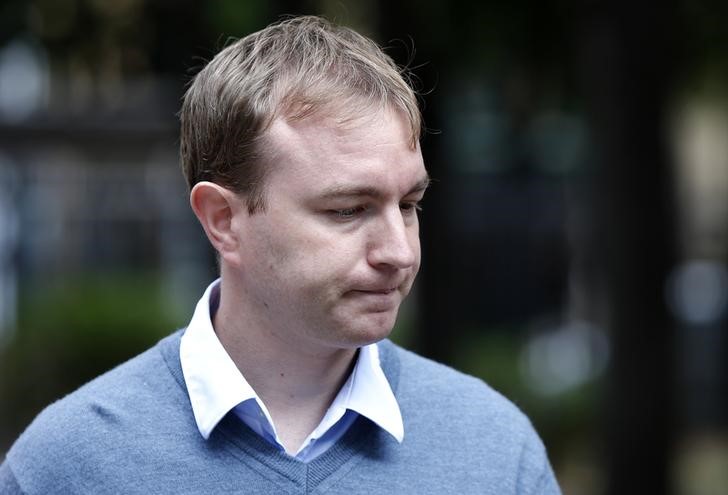By Kirstin Ridley
LONDON (Reuters) - Tom Hayes, the first trader convicted by a jury of manipulating Libor benchmark interest rates, has until the end of September to lodge final grounds for appeal against his conviction and 14-year jail sentence, a London court clerk said on Tuesday.
Hayes, who has been diagnosed with mild Asperger's Syndrome and was recently transferred from Wandsworth Prison in southwest London, initially applied for leave to appeal on Sept. 1 but was given extra time to polish the request.
The 35-year-old former UBS and Citigroup (NYSE:C) trader was last month unanimously found guilty of eight charges of conspiracy to defraud for rigging Libor, the London interbank offered rate that underpins around $450 trillion of financial contracts and loans worldwide.
The court clerk said it could take London's Court of Appeal three to five months to decide whether to grant leave to hear the case after receiving the final grounds for appeal.
The prosecution said Hayes dishonestly conspired with 25 brokers and traders at 10 of the world's most powerful financial institutions to rig Libor for profit. Hayes denied dishonesty in court, arguing he had been open about practices that were endorsed by senior staff and common in the industry at the time.
For a successful appeal, Hayes will have to show his conviction was due to an error of law and that his sentence was wrong in principle and/or manifestly excessive.
Hayes, whose sentence is one of the longest handed down for white-collar fraud, was sentenced consecutively for the conspiracies he was found guilty of while at UBS and those while at Citigroup between 2006 and 2010.
Had the sentence run concurrently, with the market rigging seen as the same offence over the period of the indictment, he would have faced a maximum 10-year sentence, lawyers say.
In his sentencing remarks, Judge Jeremy Cooke said on Aug. 3 there was no separate standard of dishonesty for any group of society, that Hayes had "appreciated at the time" he had acted dishonestly and that it was irrelevant that others had done the same or that managers condoned, embraced or even encouraged it.
Cooke said that Hayes was at the hub of the conspiracy, therefore highly cuplable, and that the actual and risk of loss to his unidentifiable counterparties placed him in the most serious category in sentencing guidelines. Moreover, he said the case was a warning to the world of banking.
"The conduct involved here must be marked out as dishonest and wrong and a message sent to the world of banking accordingly," he said.

Hayes's law firm Cartwright King was not available for comment.